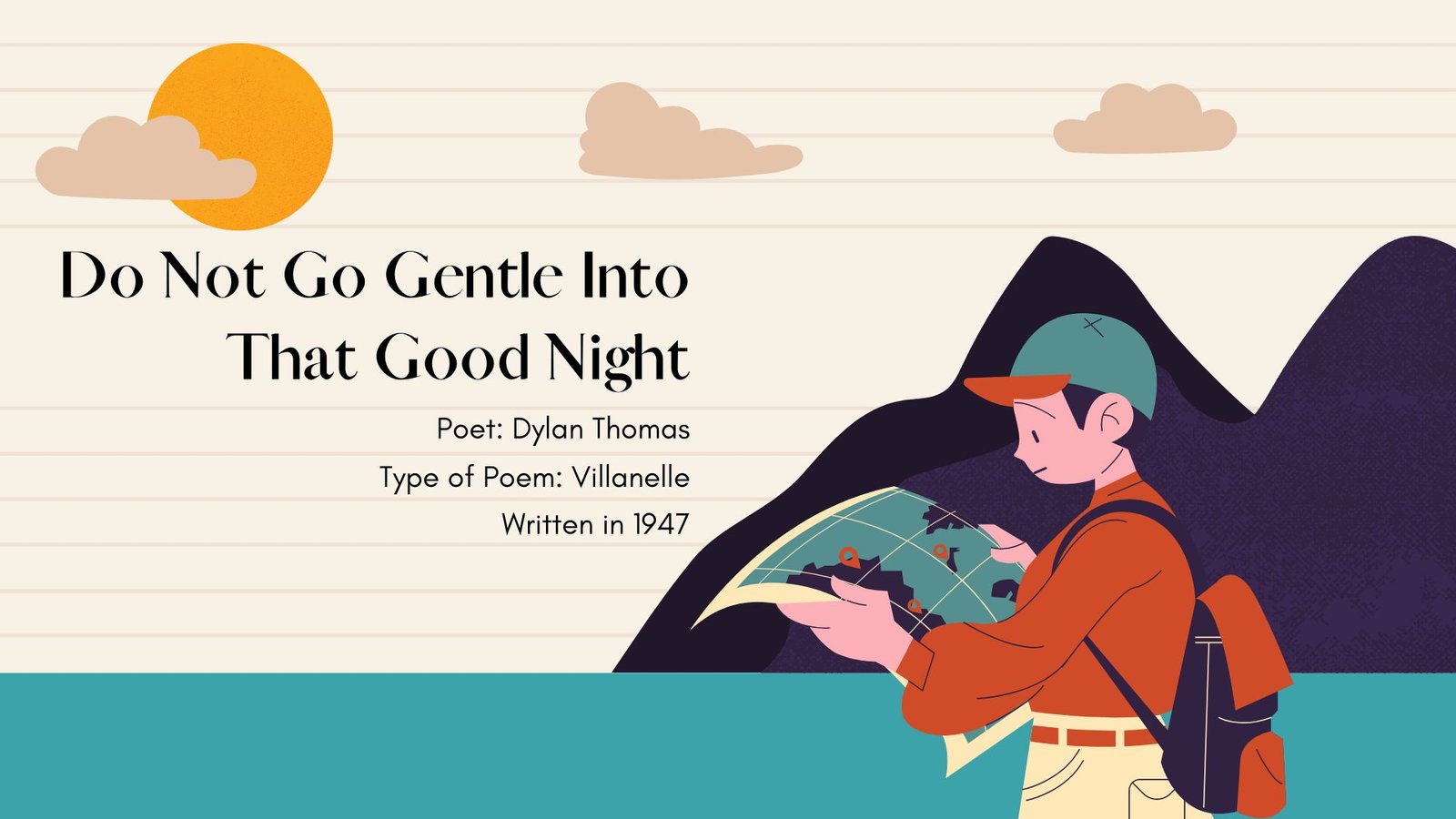Do not go gentle into that good night,
Old age should burn and rave at close of day;
Rage, rage against the dying of the light.
Though wise men at their end know dark is right,
Because their words had forked no lightning they
Do not go gentle into that good night.
Good men, the last wave by, crying how bright
Their frail deeds might have danced in a green bay,
Rage, rage against the dying of the light.
Wild men who caught and sang the sun in flight,
And learn, too late, they grieved it on its way,
Do not go gentle into that good night.
Grave men, near death, who see with blinding sight
Blind eyes could blaze like meteors and be gay,
Rage, rage against the dying of the light.
And you, my father, there on the sad height,
Curse, bless, me now with your fierce tears, I pray.
Do not go gentle into that good night.
Rage, rage against the dying of the light.
Who is Dylan Thomas?

Written by Dylan Thomas in 1947, Do Not Go, Gentle, Into That Good Night is a masterpiece that has received rave reviews. Initially published in the Italian literary journal Botteghe Oscure in 1951, it was also included in his 1952 poetry collection In Country Sleep And Other Poems. In the fall of the following year, Thomas — a self-described “roistering, drunken and doomed poet” — drank himself into a coma during his reading and lecture tour in America organized by John Brinnin—an American poet and literary critic who would later become a biographer of sorts for Dylan.
While Dylan has a considerably envious bibliography, Do Not Go, Gentle, Into That Good Night remains his best-known and most beloved poem, as well as his most redemptive—both in its universal message and in the particular circumstances of how it came to be in the context of Thomas’s life.
Despite passing away at 39, Dylan Thomas is still considered one of the most influential poets of the modern period and undoubtedly one of the most famous Welsh poets of all time.
Impact Of The Poem
 In this poem, Dylan Thomas emphasizes the love of life by deeming that its fading merits an outcry, that nobody should want death, and indeed that those with the least time left should be living life the most. Life is a limited-time gift and should be fully lived as long as we’re still drawing breath. It’s also a vehement rebuking wrought from his own fear of death.
In this poem, Dylan Thomas emphasizes the love of life by deeming that its fading merits an outcry, that nobody should want death, and indeed that those with the least time left should be living life the most. Life is a limited-time gift and should be fully lived as long as we’re still drawing breath. It’s also a vehement rebuking wrought from his own fear of death.
And the poem turns – he’s talking to his father, and yes, this is a prayer, for the father to curse or bless him with his tears (it doesn’t matter) as Thomas wants his father to fight death and not merely succumb to it. Even though there’s no way of winning, it’s all that his father has got left. As marathon runners, we should keep pushing on, even though there’s no real finish line and no reward for doing it, because life is precious, and each living person is precious and individual–everyone fighting for the next breath.
PS – I loved how they integrated the poem into The Interstellar because it introduced me to this incredible poem. Did you love this poem, too? Let us know in the comments below.



There are no reviews yet.